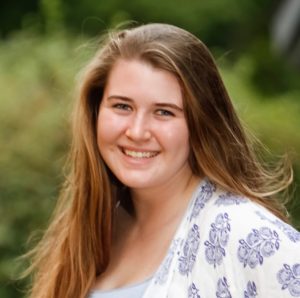 Name: Fabiola Shipley
Name: Fabiola Shipley
E-mail: fshipley@nd.edu
Language: Spanish
Location of Study: Alicante, Spain
Program of Study: CIEE
Sponsors: Center for the Study of Languages and Cultures and Nanovic Institute for European Studies
Blog URL:
A brief personal bio:
My name is Fabiola Shipley and I am a freshman studying political science, environmental science, and Spanish. My interest in the Spanish language started at a young age, as my namesake, Fabiola Garcia de la Pena, is from Pamplona, Spain. During high school, I spent a summer living with family friends in Spain to learn the language, however, much of my abilities dissipated upon return. Through Spanish classes here at Notre Dame I have had the opportunity to engage with the Hispanic community in South Bend and continue to view the Spanish language as an increasingly important aspect of my personal, academic, and professional life.
Why this summer language abroad opportunity is important to me:
Throughout my coming years at Notre Dame and in my professional career, I hope to serve the hispanic community here in South Bend, in the United States more generally, and abroad. Upon return form this summer abroad I hope to enroll in a higher level community based learning class in order to engage with the hispanic and immigrant communities in South Bend, and throughout the United States, at an even deeper level.
Additionally, I hope to apply for an International Summer Service Learning Program in a Latin American country to live in community with the people and understand the needs of these Spanish-speaking communities abroad.
As a likely Political Science major and Spanish supplementary major, I am interested in the intersection of these two fields in the form of immigration policy and the political interests of the growing Hispanic population in the United States.
In all of these endeavors between classes here at Notre Dame, volunteer work, summer projects, and future careers, Spanish is critical in affording me an opportunity to better serve people. The Summer Language Abroad Grant is a foundation for language-learning that would continue throughout my lifetime in my personal life and professional career.
What I hope to achieve as a result of this summer study abroad experience:
Having spent a summer in the small town of Zubiri in Northern Spain when I was 14 years old, I know the power that immersion has to transform Spanish abilities and cultural perspectives. In my past immersion experience, however, I was learning in much less formal ways, by simply conversing and listening. Therefore upon my return, my reading, writing, and grammar skills were far behind my conversational abilities. Through the Summer Language Abroad Grant, the opportunity to study Spanish through ISA in Barcelona, while being immersed in a new culture and Spanish dialect, will have an incredible impact on both my linguistic fluency, technical abilities, and cultural competency. I hope that the Summer Language Abroad Grant will afford me the opportunity to enhance my Spanish-speaking skills and better relate to people of other cultures and languages, more broadly. The language ability, cultural fluency, and interpersonal skills that I hope to develop through this grant will enhance my academic development and career prospects as well.
My specific learning goals for language and intercultural learning this summer:
1. At the end of the summer, I will be able to discuss high level academic and political topics with native speakers, such as international relations, global impacts of US domestic policy, Spain’s democratic index, and the future role of Spain in the European Union.
2. At the end of the summer, I will show a mastery of Spanish grammatical structures and be able to fluently integrate complex grammar into my speaking and writing.
3. At the end of the summer, I will demonstrate a willingness to actively engage with native speakers, even in situations that I feel are beyond my linguistic abilities and cultural understanding.
4. At the end of the summer, I will be able to read and comprehend scholarship and historical primary sources in Spanish to better understand the role of Spanish colonization on the modern states of Latin American countries today.
5. At the end of the summer, I will be able to better understand the cultural subtleties embedded in language, which cannot be translated into English, as to better communicate with, relate to, and form personal relationships with native speakers and those of a foreign culture.
My plan for maximizing my international language learning experience: